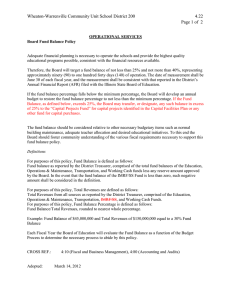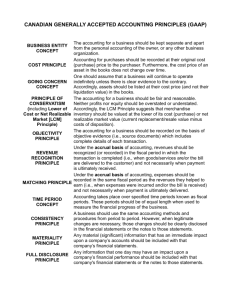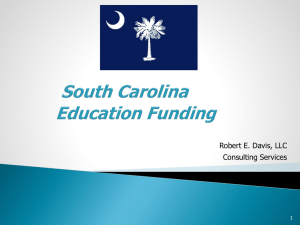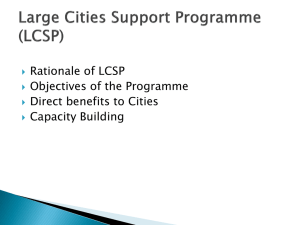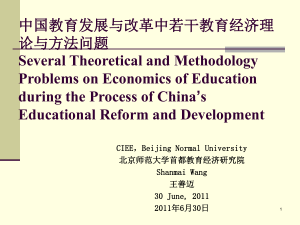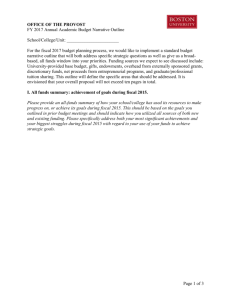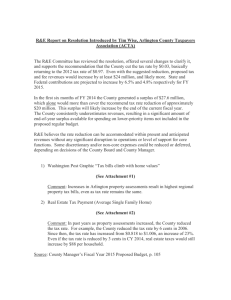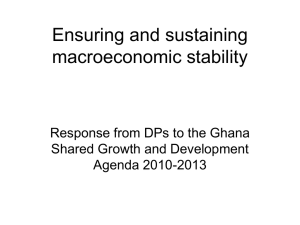2014 Comps Distinction
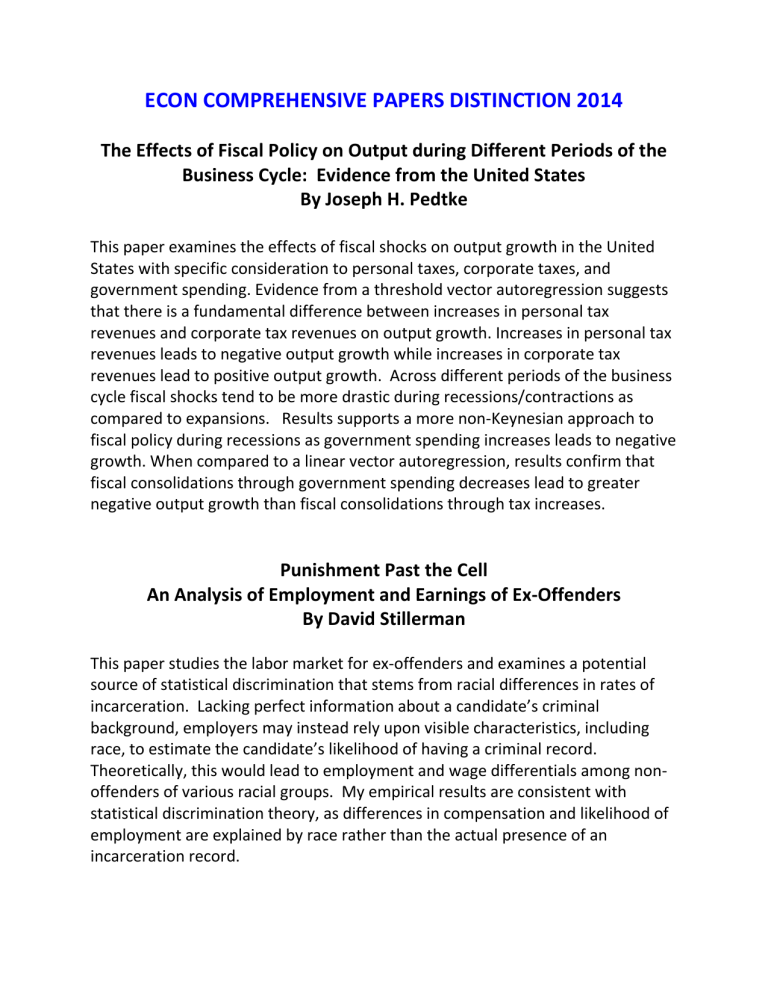
ECON COMPREHENSIVE PAPERS DISTINCTION 2014
The Effects of Fiscal Policy on Output during Different Periods of the
Business Cycle: Evidence from the United States
By Joseph H. Pedtke
This paper examines the effects of fiscal shocks on output growth in the United
States with specific consideration to personal taxes, corporate taxes, and government spending. Evidence from a threshold vector autoregression suggests that there is a fundamental difference between increases in personal tax revenues and corporate tax revenues on output growth. Increases in personal tax revenues leads to negative output growth while increases in corporate tax revenues lead to positive output growth. Across different periods of the business cycle fiscal shocks tend to be more drastic during recessions/contractions as compared to expansions. Results supports a more non-Keynesian approach to fiscal policy during recessions as government spending increases leads to negative growth. When compared to a linear vector autoregression, results confirm that fiscal consolidations through government spending decreases lead to greater negative output growth than fiscal consolidations through tax increases.
Punishment Past the Cell
An Analysis of Employment and Earnings of Ex-Offenders
By David Stillerman
This paper studies the labor market for ex-offenders and examines a potential source of statistical discrimination that stems from racial differences in rates of incarceration. Lacking perfect information about a candidate’s criminal background, employers may instead rely upon visible characteristics, including race, to estimate the candidate’s likelihood of having a criminal record.
Theoretically, this would lead to employment and wage differentials among nonoffenders of various racial groups. My empirical results are consistent with statistical discrimination theory, as differences in compensation and likelihood of employment are explained by race rather than the actual presence of an incarceration record.
Testing for Success: High School Exit Exams and the Labor Market
By Graham Tierney
This paper examines the effect of requiring high school students to pass a standardized exit exam to graduate. I exploit variation in post-graduation wages and exit exam requirements to determine if the effects of exit exams on labor market outcomes are different for high- and low-quality schools. I find that, overall, students from low-quality schools benefit more from an exit exam requirement than students from high-quality schools.
To Work or Not to Work: That is the Question.
An Intergenerational Approach to Female Labor Market Behavior
By Huaiyu Wang
Taking into account the randomness of wage offers, my study models the dynamics of change in employment as a stochastic process. Thus, based on the assumption that individuals are rational and future-focused, the expected utility of participation in the labor market, along with the current utility of employment, affects individuals’ current employment status. Using data form the General
Social Survey I applied a two-state logistic regression model to investigate female labor participation and labor supply separately. The same observable and intergenerational factors are included at both stages as explanatory variables to estimate the influence of each factor on the female labor force. The results are also compared with the results for males. This paper integrates female labor participation and labor supply. It also expands on existing studies by incorporating intergenerational effects into the analysis of females’ labor market decision making.
